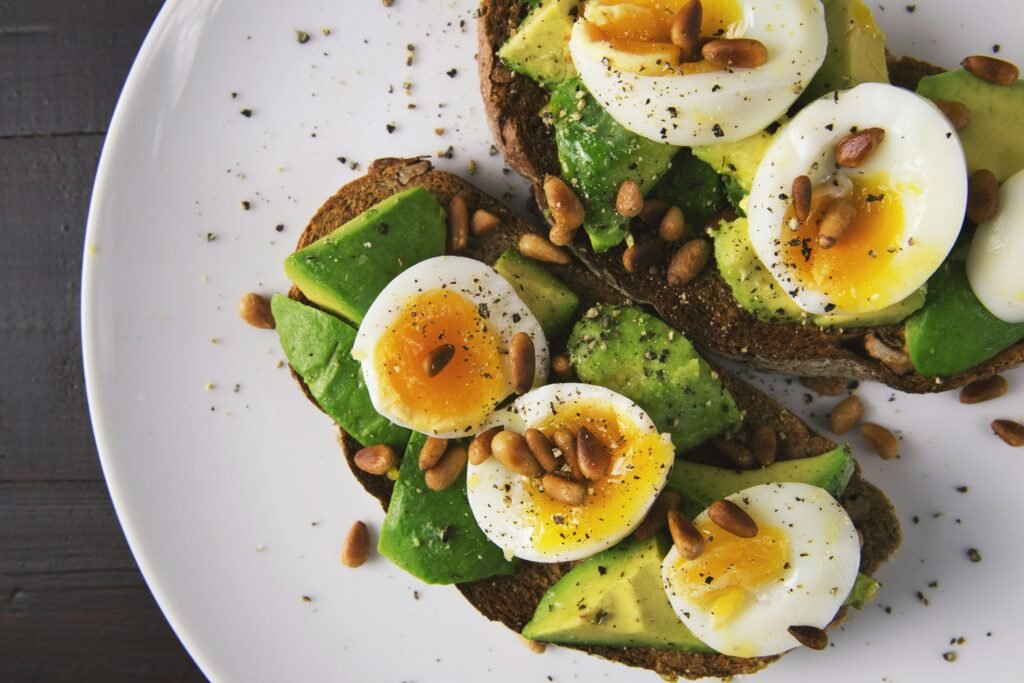
The Energy Crisis Most Men Don’t Recognize
It’s not just you. Many men find themselves dragging through the day, powering through workouts that feel harder than they should, or crashing mid-afternoon in front of their laptops. The culprit isn’t age alone—it’s often what’s missing from the plate. A carefully structured energy diet plan for men can reignite stamina, sharpen focus, and restore the drive that modern life tends to erode.
Forget quick fixes and exotic supplements. The path to consistent energy and resilience comes from proven, science-backed nutrition. Let’s explore how real food becomes the most reliable energy source for the mature male body.
Where Energy Actually Comes From (It’s Not Just Calories)
Calories are just part of the equation. True energy—the kind that powers long workdays, workouts, and focus—relies on how efficiently your body converts food into usable fuel. Hormones like insulin, cortisol, and testosterone play critical roles in this process. So does your gut health, muscle mass, and sleep quality.
This is why a solid daily meal plan for active men goes beyond macros. It focuses on nutrient timing, blood sugar control, micronutrient density, and metabolic flexibility. In short, what you eat, how you combine it, and when you eat it all matter.

Why Men Lose Steam as They Age
Energy dips aren’t inevitable. But they do become more common due to key physiological changes:
- Decreased testosterone impacts muscle retention and motivation.
- Reduced insulin sensitivity leads to energy crashes after carb-heavy meals.
- Loss of mitochondrial function limits how efficiently cells create ATP, the energy currency of the body.
- Suboptimal sleep and stress levels disrupt cortisol rhythms, sabotaging daytime energy.
Fortunately, the right foods can counteract all of these issues. That’s the promise of strategic fatigue-fighting nutrition.
The Ultimate Stamina Foods for Men
Think of stamina as the ability to stay energized without artificial boosts or constant snacks. The best stamina foods for men deliver lasting fuel, minimize inflammation, and support muscle recovery. Here are some essentials:
- Oats: Slow-burning carbs with B-vitamins that support energy metabolism
- Eggs: Packed with protein and choline for brain and nerve health
- Beef liver: Rich in B12, iron, and CoQ10—all crucial for cellular energy
- Bananas: Loaded with potassium for muscle function and blood sugar control
- Salmon: Delivers omega-3s to reduce inflammation and aid oxygen efficiency
- Pumpkin seeds: Provide magnesium and zinc, often low in tired men
Mixing these into a weekly rotation supports energy output across physical, mental, and sexual domains.

Carbs and Hormones: Friends or Foes?
Carbohydrates often get a bad reputation, especially in “low energy” discussions. But when chosen and timed well, carbs are a cornerstone of the best energy diet plan for men. They’re necessary for thyroid function, testosterone production, and muscle glycogen replenishment.
Here’s how to use them right:
- Pre-workout: Moderate-carb meals with fruit, oats, or sweet potato can boost performance.
- Post-workout: Carbs help blunt cortisol and restore glycogen—vital for recovery.
- Evening meals: Carbs like brown rice or lentils help induce serotonin and aid sleep.
The problem isn’t carbs—it’s processed carbs without fiber, protein, or fat to slow absorption. Pair them right, and they become hormone allies, not enemies.
What Your Breakfast Says About Your Energy by Noon
Breakfast is either your fuel tank—or your crash course. Skipping it or starting with sugar (think muffins, sweetened cereal, even “healthy” granola) guarantees energy volatility. For real performance, you need energizing breakfast ideas that balance protein, fat, and slow-digesting carbs.
Top options include:
- Eggs with sautéed spinach and avocado
- Greek yogurt with chia seeds and blueberries
- Steel-cut oats with almond butter and banana
- Protein smoothie with flax, cacao, and frozen berries
These combinations fuel mitochondria, stabilize blood sugar, and promote focus until your next meal—not 10 a.m. snack time.
A Sample Day of Fatigue-Fighting Nutrition
Here’s how a structured daily meal plan for active men might look:
- Breakfast: 3 scrambled eggs, sautéed kale, half an avocado, green tea
- Snack: A handful of almonds and a pear
- Lunch: Grilled chicken, quinoa, mixed greens with olive oil and walnuts
- Snack: Hard-boiled egg, a few dark chocolate squares
- Dinner: Baked salmon, roasted sweet potatoes, steamed broccoli
This plan balances macronutrients across the day, avoids energy dips, and promotes consistent stamina.

Common Energy Killers Hiding in “Healthy” Diets
Not all health foods are created equal. Some can sap energy, disrupt hormones, or leave you hungrier than before:
- Low-fat meals: Fats are needed for testosterone and brain function.
- Meal replacement bars: Often high in sugar alcohols or soy protein isolates.
- Fruit-only smoothies: Cause insulin spikes without fiber or protein.
- Excess caffeine: Leads to energy crashes and adrenal fatigue.
- Frequent snacking: Prevents fat burning and disrupts circadian rhythms.
Energy nutrition is about precision—not restriction or over-reliance on fads.
How Micronutrients Keep the Engine Running
Macronutrients (protein, carbs, fat) get all the spotlight, but micronutrients are where the real energy conversion happens. Deficiencies in just a few can completely drain stamina. Watch for these:
- Iron: Vital for oxygen transport; low levels cause fatigue
- Magnesium: Needed for ATP production; deficiency linked to low energy and poor sleep
- Vitamin B12: Required for red blood cell formation and brain function
- Zinc: Supports testosterone and immune strength
- CoQ10: A key compound in mitochondrial energy production
Foods like beef, shellfish, nuts, seeds, and leafy greens offer a micronutrient arsenal that no synthetic multivitamin can match.
Case Example: Turning Burnout Into a Comeback
Martin, 51, was working 12-hour days as a consultant. Despite regular gym sessions, his energy plummeted by mid-morning. After reviewing his habits, we swapped his carb-heavy cereal for eggs and greens, added magnesium-rich almonds as snacks, and eliminated sugary coffee drinks. Within three weeks, his energy leveled out, workouts improved, and mental fog lifted. He didn’t add a supplement—he rebuilt his diet.
What Matters Most
If you’re tired of feeling tired, the solution isn’t a pill—it’s a plate. The right energy diet plan for men fuels not just your workouts, but your workdays, relationships, and mood. It’s sustainable, enjoyable, and scientifically grounded. No hype—just high performance from the inside out.
Your energy isn’t gone. It’s just waiting for the right fuel.


